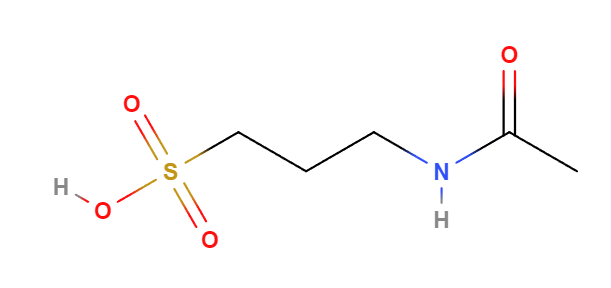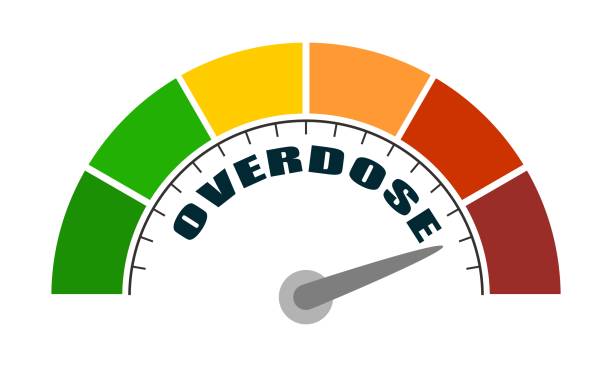Acamprol, Acamprosate
- 1. What is Acamprol (Acamprosate)
- 2. Chemical Composition of Acamprosate
- 3. Acamprosate Mechanism of Action: How Acamprosate Works
- 4. Indications and Uses of Acamprosate
- 5. Off-Label Uses of Acamprosate
- 6. Dosage and Administration Guidelines
- 7. Side Effects Associated with Acamprosate
- 8. Drug Interactions and Contraindications
- 9. Special Precautions and Warnings
- 10. Administration Precautions
- 11. Storage and Handling of Acamprosate
- 12. Overdose Management and Emergency Procedures
1. What is Acamprol (Acamprosate)
Overview of Acamprosate (Brand Name: Acamprol)
Acamprosate, also known by its name Acamprol, plays a crucial role in the field of addiction treatment. This medication helps restore the balance of neurochemicals that are affected by long-term alcohol consumption. Regulating the GABA neurotransmitter systems helps alleviate the physical discomfort and emotional challenges commonly experienced during the initial stages of recovery.

The Role of Acamprosate in Treating Alcohol Dependence
Acamprosate plays a role in holistic recovery plans by boosting the chances of staying sober and extending the period of sobriety for those overcoming alcohol addiction. It works best when paired with interventions providing a comprehensive treatment strategy that tackles both the physical and psychological aspects of addiction:
- Alleviation of withdrawal symptoms
- Reduction in cravings for alcohol
- Assistance in sustaining abstinence over the long term
2. Chemical Composition of Acamprosate
Active Ingredients and Excipients
Acamprosate contains acamprosate calcium, a man-made substance similar to the natural amino acid homotaurine. It is usually combined with additives, like cellulose, crospovidone, and silicon dioxide, to improve how the drug is processed in the body, aiding in its absorption and effectiveness.

Formulation Details
Acamprosate comes in delayed-release tablets that are made to endure the stomach's acidity, allowing the active ingredient to be released in the intestines where absorption is best. This careful formulation helps improve its effectiveness and reduces the chances of experiencing stomach-related discomfort, which is a typical side effect.
Acamprosate vs Naltrexone
While both Acamprosate and Naltrexone play roles in treating alcohol dependence, they work in different ways:
- Acamprosate helps restore the brain's chemical balance affected by alcohol.
- Naltrexone, conversely, blocks receptors linked to the enjoyable effects of drinking. These differences highlight naltrexone's effectiveness in reducing the enjoyment of alcohol, leading to decreased consumption.
On the other hand, Acamprosate is more effective at managing cravings and withdrawal symptoms.
Acamprosate vs Disulfiram
Acamprosate and Disulfiram tackle alcohol dependence in different ways. Disulfiram triggers a negative response to alcohol consumption to discourage it. On the other hand, Acamprosate works by stabilizing brain chemistry to help prevent relapse without causing aversive reactions. This difference in how they work highlights the importance of customized strategies in treating addiction.
Acamprosate vs Antabuse
Antabuse, also known as Disulfiram, is frequently contrasted with Acamprosate for its shared objective of addressing alcohol dependence. The critical distinction between the two lies in their methods:
- Antabuse triggers physical consequences upon alcohol consumption
- Acamprosate aids in restoring the brain from alcohol-induced neurochemical imbalances, providing a gentler and more therapeutic approach.
3. Acamprosate Mechanism of Action: How Acamprosate Works
Neurological Impact on Craving Reduction
Acamprosate has an impact on the central nervous system mainly by reducing the intense cravings linked to alcohol dependency. It helps regulate neurotransmitter pathways that can worsen after abstaining, ultimately decreasing the strong desire to drink alcohol.

Restoration of Brain Balance
The main idea behind Acamprosates' approach is to help the brain regain balance after prolonged alcohol consumption. It works by regulating both excitatory and inhibitory neurotransmitters, focusing on the GABAergic systems to bring back a sense of neurological stability.
How does Acamprosate work
Acamprosate works in two ways to provide its benefits:
- It reduces the excessive glutamatergic activity that occurs after stopping alcohol consumption.
- At the time it boosts GABAergic activity leading to a sense of calmness and lessening the physical stress linked to alcohol withdrawal.
This combined adjustment aids in maintaining cognitive abilities and emotional well-being, which are essential for individuals striving to stay sober while recovering from alcohol addiction.
4. Indications and Uses of Acamprosate
Primary Uses in Alcohol Abstinence
Acamprosate is commonly recommended to help people who have stopped drinking alcohol stay sober. It plays a role in combination with counseling and group support to promote lasting abstinence.
Clinical Efficacy and Outcomes
The effectiveness of Acamprosate in settings has been extensively documented in various studies and trials.
- It plays a role in lowering the chances of relapse among individuals who have stopped drinking alcohol.
- Extends the periods of abstinence
These results highlight its importance in managing alcohol dependence, positioning it as a crucial asset in combating addiction.
5. Off-Label Uses of Acamprosate
Potential Applications Beyond Alcohol Dependence
Acamprosate is commonly prescribed to help with alcohol addiction. New studies indicate that it may also be beneficial for other mental health issues. This could mean a treatment option for conditions such as anxiety and gambling problems that involve imbalanced glutamate activity in the brain.
Acamprosate Dose for Alcohol Dependence
The usual amount of Acamprosate prescribed for treating alcohol addiction is typically 666 mg, taken three times daily, adjusted based on kidney function and weight. This treatment plan aims to enhance the brain's balance to reduce urges and support continued sobriety.

Does Acamprosate Help with Anxiety?
Early research suggests that Acamprosate may have the ability to help reduce anxiety symptoms in people who also struggle with alcohol dependency. By stabilizing communication in the brain, this medication could potentially influence the neural circuits associated with anxiety disorders.
Current Research and Clinical Trials
Researchers are currently delving into the effects of Acamprosate's neurochemical properties.
- Recent clinical trials are looking into how effective it is in treating various addictive behaviors.
- Studies are ongoing to uncover its influence on anxiety and mood disorders.
These research efforts help comprehend Acamprosate's complete range of therapeutic possibilities and broaden its use in clinical settings.
6. Dosage and Administration Guidelines
Dosage Schedules for Different Patient Demographics
The dosage of Acamprosate changes depending on patient characteristics such as kidney function and weight. In adults with kidney function, the typical treatment plan consists of taking 666 mg three times a day and starting the medication once sobriety is attained.
Methods of Administration and Timing
Acamprosate is usually given by mouth as delayed-release tablets. To ensure the delayed-release feature works effectively, swallow the tablets whole and not crush or chew them. The best outcomes are seen when the medication is taken regularly, at least once a day.
When to Start Acamprosate
It's essential to start taking Acamprosate when you stop drinking alcohol. It's best to begin to make the most of its effect on brain chemistry, especially in the early stages of recovery.
Acamprosate: How Long to Take
Typically, Acamprosate therapy lasts for a year, but the duration can differ depending on how well an individual is recovering and the clinical assessment. People with a history of dependency may need to undergo treatment for an extended period.
How Long Does Acamprosate Stay in Your System?
After you stop taking it, Acamprosate leaves the body fast, with a half-life of around 30 hours for elimination. It typically gets completely cleared within a day, which is beneficial for individuals who might have to stop the treatment suddenly.
7. Side Effects Associated with Acamprosate
Common Side Effects: Gastrointestinal, Emotional, and Physical
Acamprosate can cause side effects mainly:
- Stomach issues like diarrhea, nausea, and stomach ache.
- Emotional impacts such as changes in mood and feeling down.
- Signs like itching, skin rash, and feeling dizzy.
These symptoms typically show up as the body gets used to the medicine and usually lessen with time.

Managing and Mitigating Side Effects
Managing side effects is essential to ensure patients stick with Acamprosate treatment. Here are some strategies:
- Changing the dosage with guidance to ease severe symptoms.
- Using treatments like antiemetics for specific issues such as nausea.
- Keeping tabs, on things and having discussions to adjust the treatment plan when necessary.
Acamprosate Weight Loss
Weight loss might happen as a side effect of Acamprosate, mostly linked to digestive issues that lower appetite and food consumption. Nonetheless, this isn't the main impact of the medication.

Does Acamprosate Make You Sick?
Not everyone who takes Acamprosate will feel unwell. Some may encounter side effects that resemble sickness, like nausea, vomiting, and headaches. These effects usually pass quickly and can be controlled with the right medical advice.
8. Drug Interactions and Contraindications
Potential Drug Interactions
Healthcare providers should exercise caution when prescribing Acamprosate alongside medications. There is a possibility of interactions:
- Antidepressants, which may impact their effectiveness
- Anxiolytics potentially lead to a soothing effect.
These interactions require monitoring by healthcare professionals.

Absolute and Relative Contraindications
Acamprosate should not be used in individuals with kidney problems and should be used with caution in those with specific mental health issues, like significant depression, as it could worsen these conditions.
Acamprosate and Alcohol
Acamprosate is meant to help maintain sobriety without causing effects when alcohol is consumed. This sets it apart from medications like Disulfiram, which can lead to reactions when alcohol is ingested.
What Happens If You Drink on Acamprosate?
When you drink alcohol while using Acamprosate, there isn't a clash in terms of medication since the drug doesn't interact with alcohol to cause any negative impacts. Nonetheless, drinking alcohol can reduce the effectiveness of Acamprosate in helping you stay sober, so it's best to steer off it to aid your recovery journey.
9. Special Precautions and Warnings
Use in Special Populations: Elderly, Pregnant Women, Nursing Mothers
Administering Acamprosate to groups requires careful consideration:
- Elderly: Due to issues with kidney function, dosage adjustments may be needed to reduce the risk of buildup and harm.
- Pregnant Women: Acamprosate should only be used during pregnancy if the benefits outweigh the risks to the child. More research is needed on how it affects development.
- Nursing Mothers: It's uncertain if Acamprosate passes into breast milk. Caution is advised. Nursing mothers should consider stopping the drug or breastfeeding, balancing its importance for the mother.

Risk Factors and Monitoring Requirements
It is essential to assess risks and monitor patients regularly when prescribing Acamprosate. Individuals with a history of depression or thoughts of suicide need monitoring to prevent any worsening of these conditions. Regular psychiatric assessments are necessary to ensure the administration of Acamprosate in such cases. Moreover, it is advised to conduct function tests before and during treatment to detect any kidney problems early on and adjust the dosage as needed to avoid any adverse effects.
10. Administration Precautions
Pediatric Administration: Safety and Dosage
The safety and effectiveness of Acamprosate in children has not been fully proven. There is research and data on how this medication affects individuals under 18 years old, so it's essential to be cautious when considering its use in this age group.
Guidelines for Elderly Patients
Elderly individuals are more prone to experiencing the side effects of medications because their organ function naturally declines as they age.
- It may be necessary to lower the dosage to avoid the build-up of drugs and potential adverse effects.
- Monitoring kidney function closely is crucial since older individuals often have reduced capacity.
These modifications are vital to customize Acamprosate treatment according to the physiological abilities of elderly patients, guaranteeing effectiveness and safety.
11. Storage and Handling of Acamprosate
Optimal Storage Conditions
Ensure Acamprosate is stored in a controlled environment to maintain its effectiveness. Follow these guidelines for storage:
- Temperature: Store at room temperature, usually 15°C to 30°C.
- Humidity: Keep in a location away from excess moisture.
- Light: Prevent direct sunlight exposure by storing it in a resistant container.

Safe Handling Practices
When dealing with Acamprosate, it's essential to follow safety guidelines to avoid contamination and ensure the well-being of the user:
- Remember to wash your hands after handling the medication.
- Wearing gloves is advisable if there's a chance of contact with the tablets, especially for individuals with sensitive skin or open wounds.
- Keep the medication out of childrens and pets' reach to prevent ingestion.
12. Overdose Management and Emergency Procedures
Signs and Symptoms of Overdose
Signs of an Acamprosate overdose may show up in ways such as:
- Intense stomach discomforts like ongoing nausea, vomiting, and diarrhea.
- Cognitive issues like confusion and unusual behavior.
- Changes in mood or feelings that differ significantly from the state.

Immediate Actions and Antidote Information
In case of an overdose of Acamprosate, it is essential to seek medical help. Here are the steps to follow:
- Contact emergency services or poison control without delay.
- Offer care, mainly focusing on treating symptoms.
- Keep a watch on vital signs and mental status until professional assistance arrives.
There is no antidote for Acamprosate toxicity currently. Hence, treatment involves providing support and managing symptoms.







